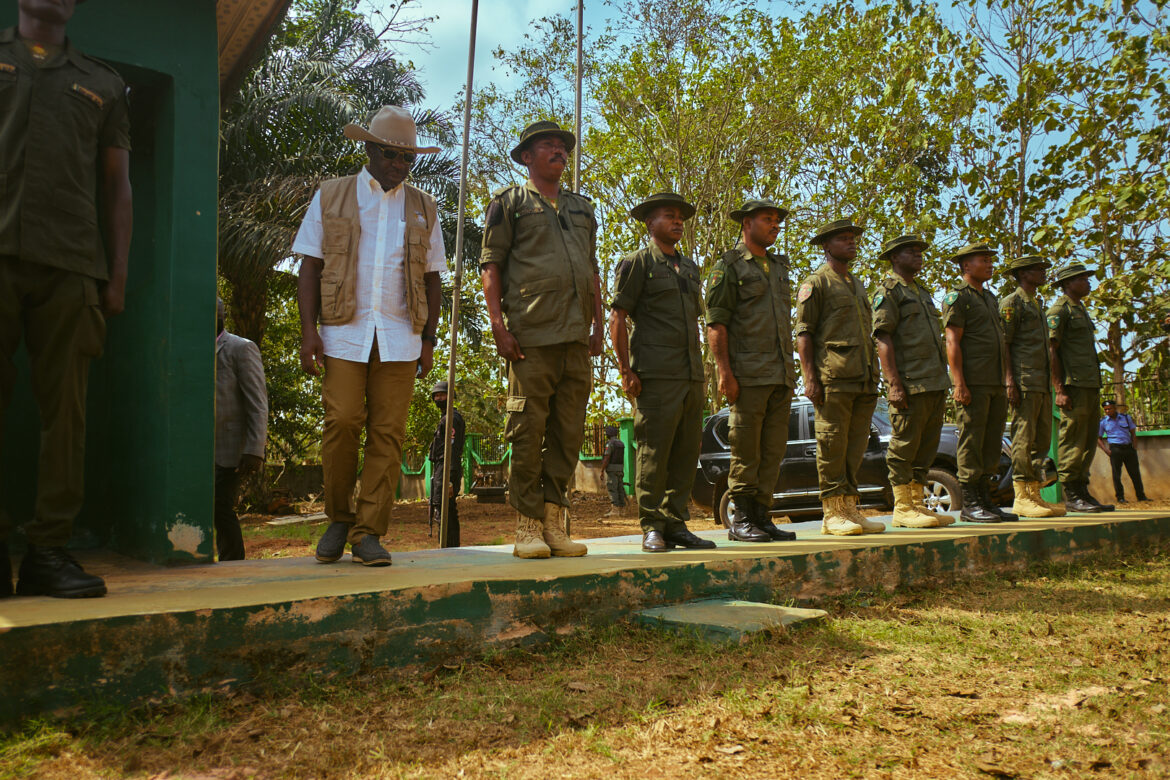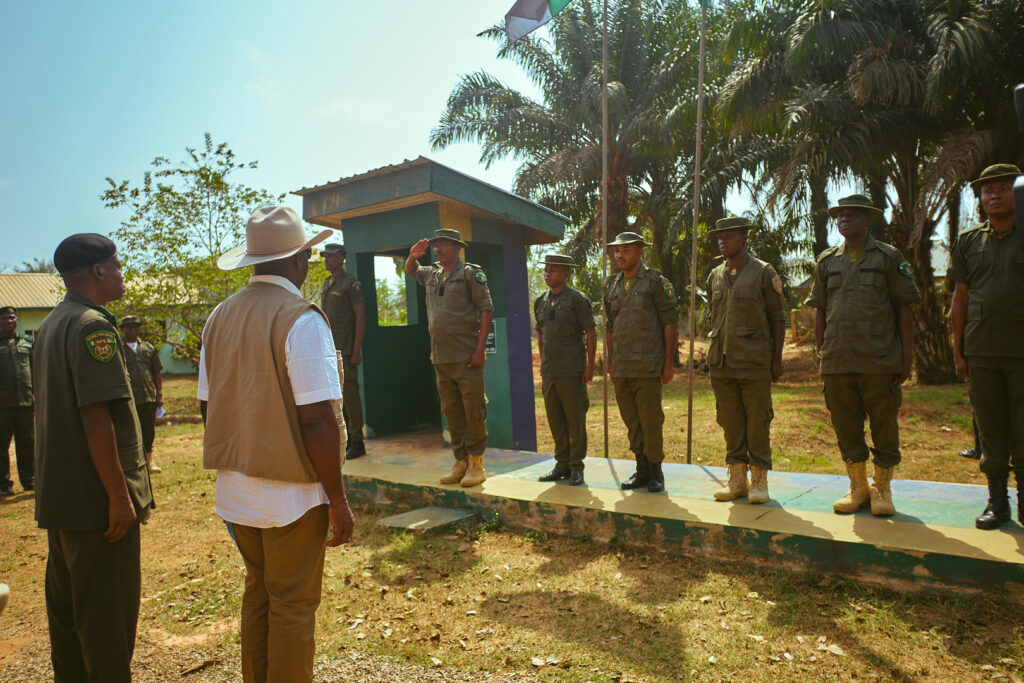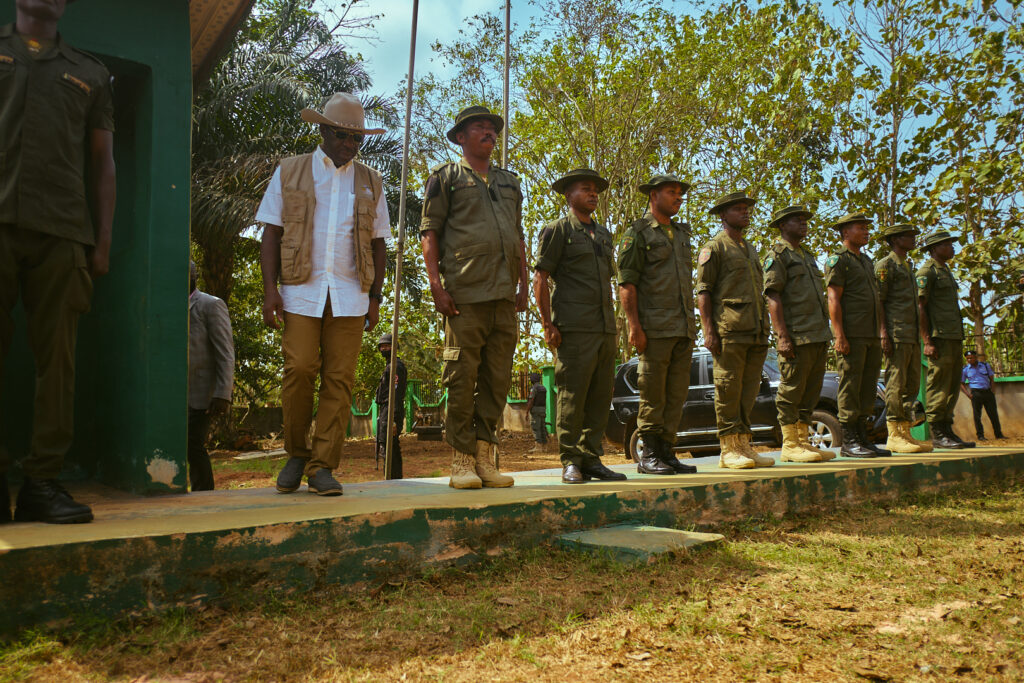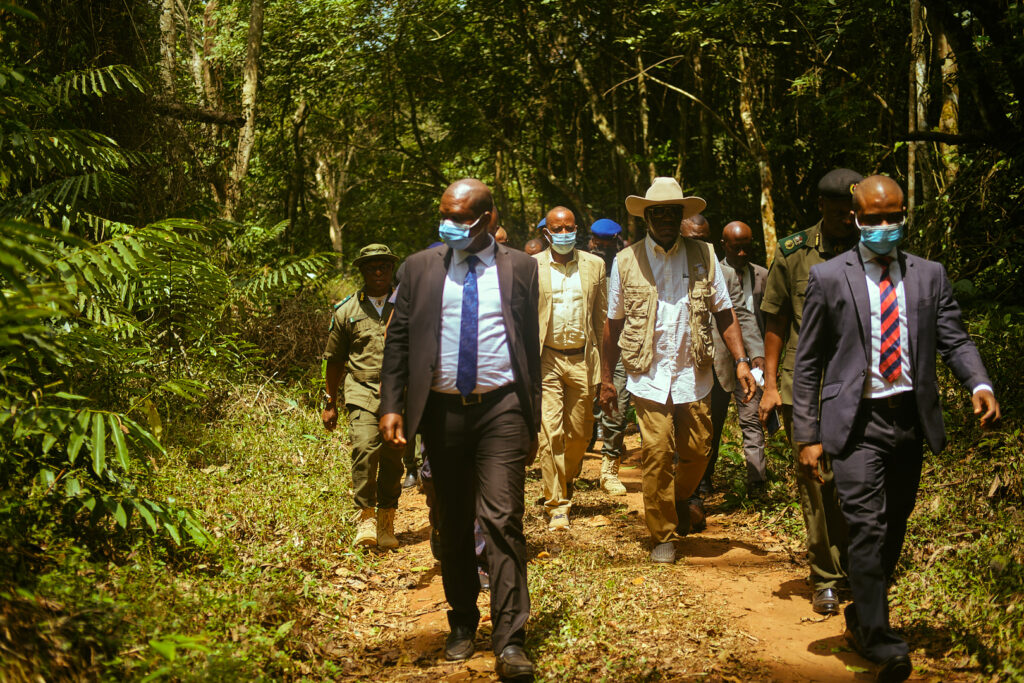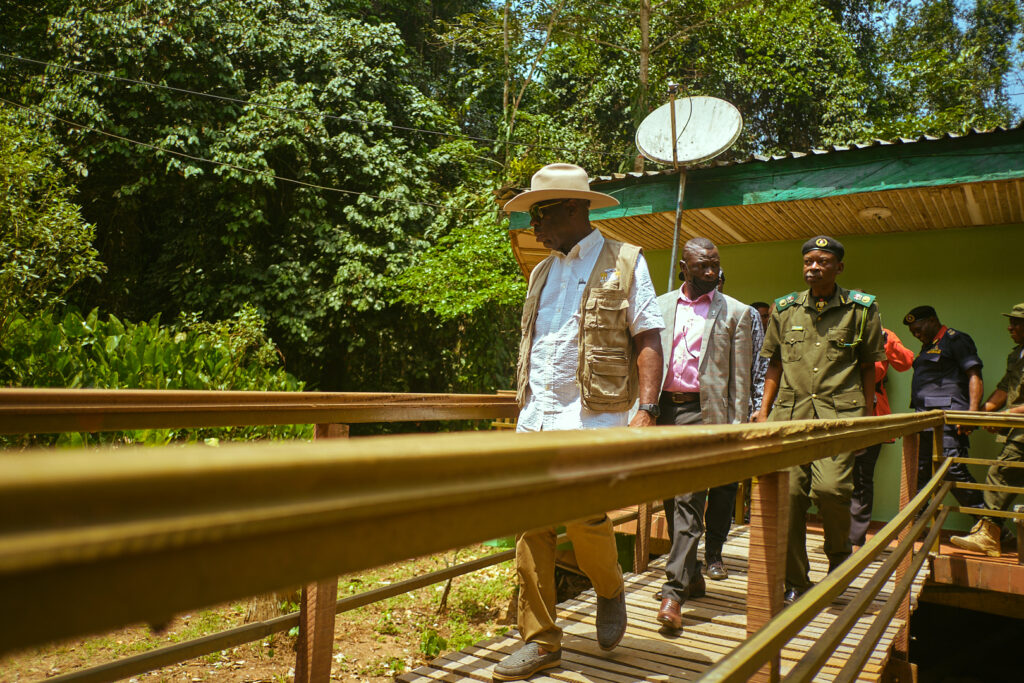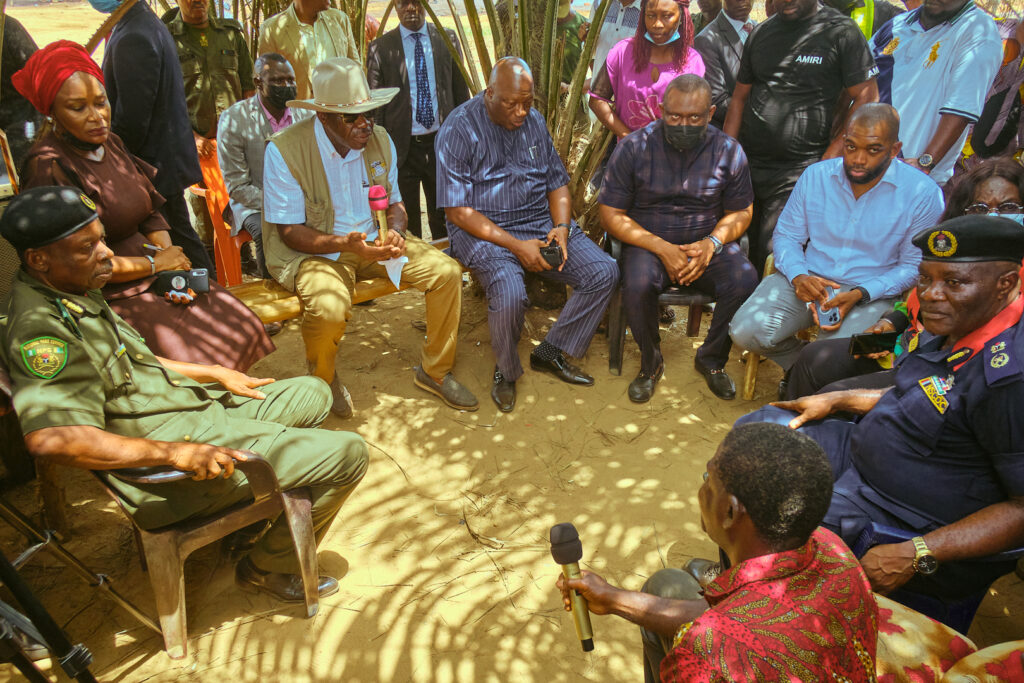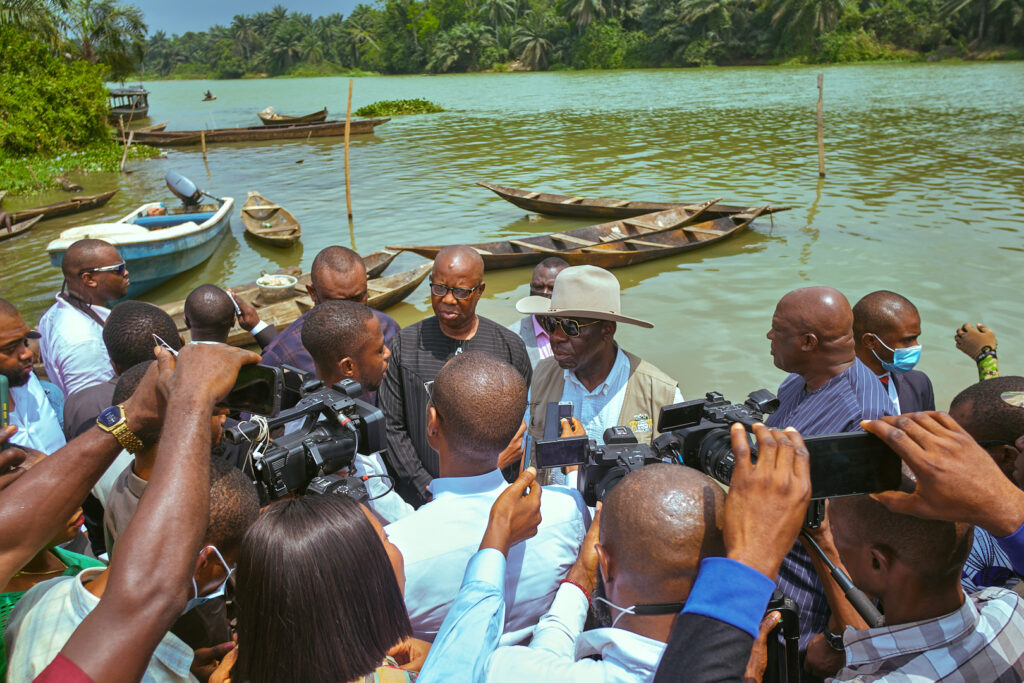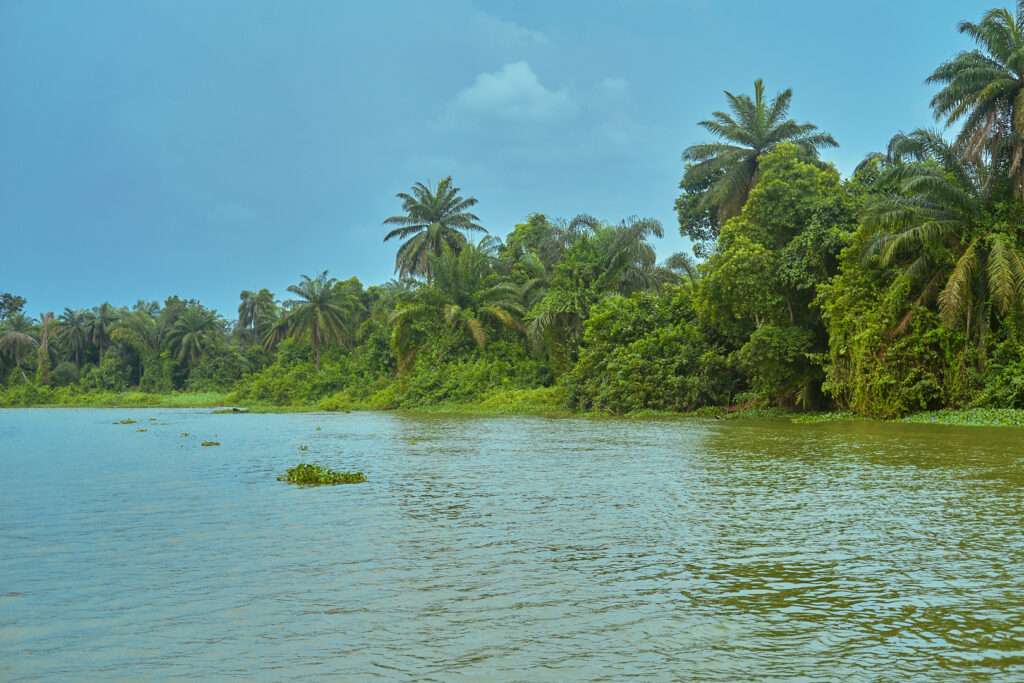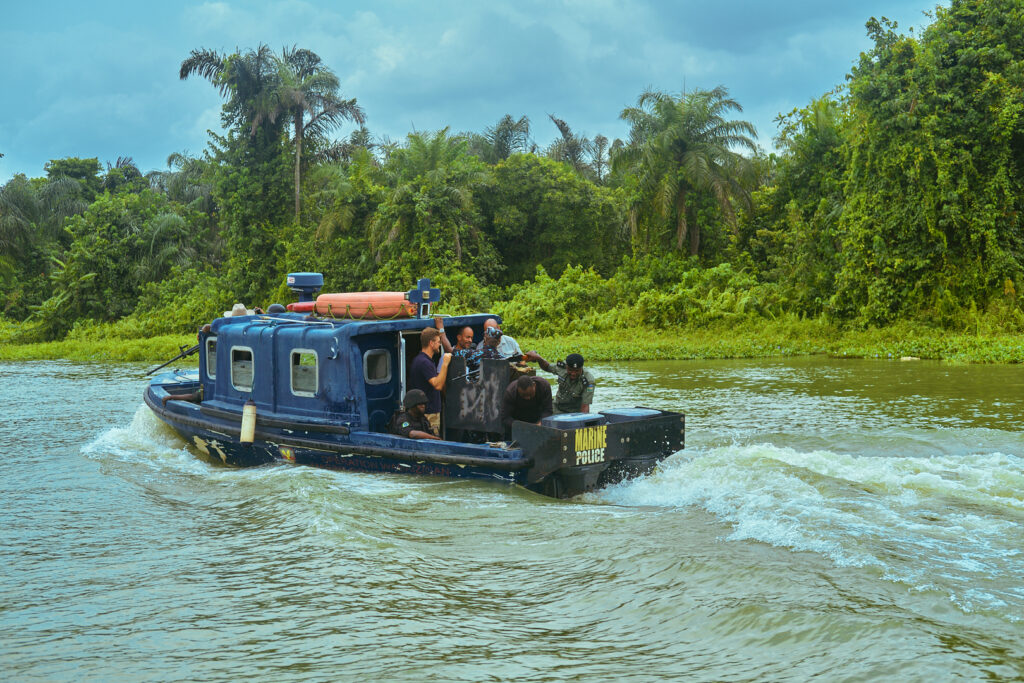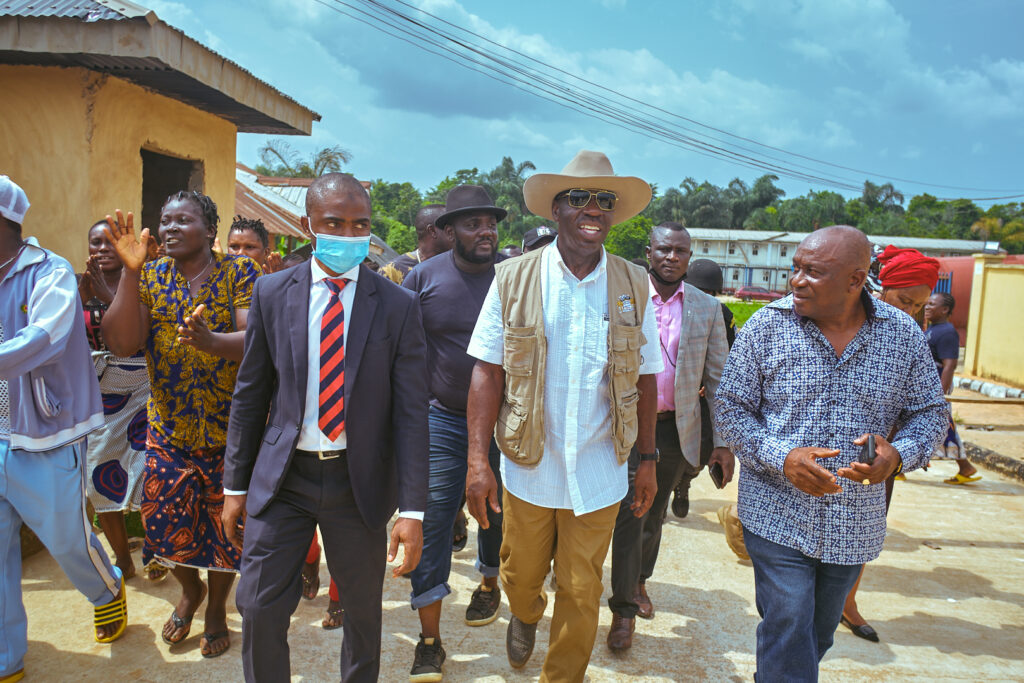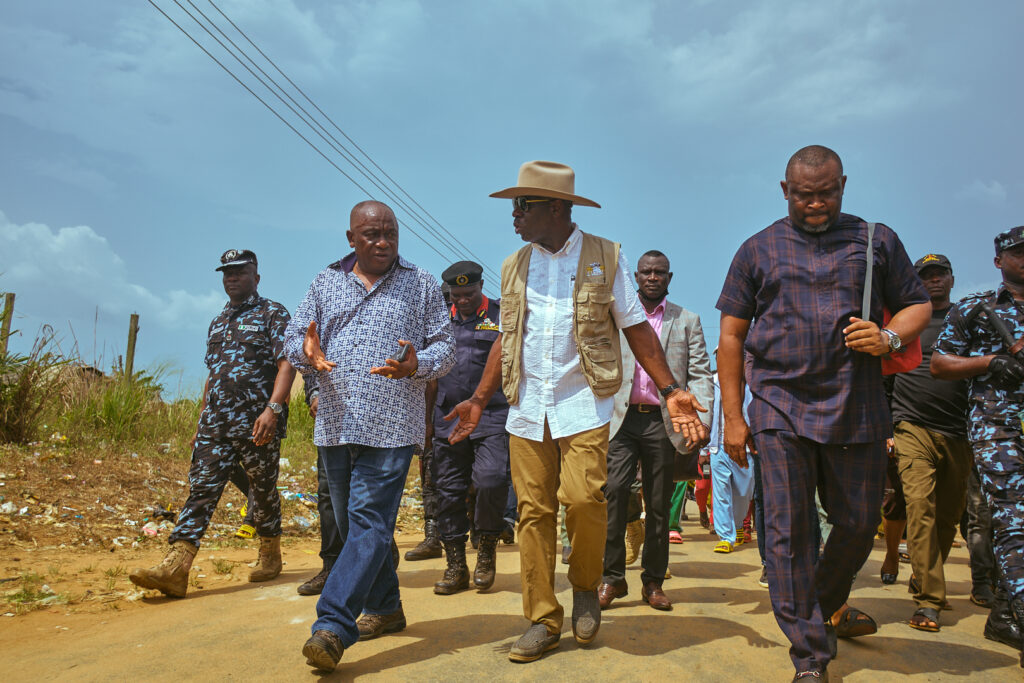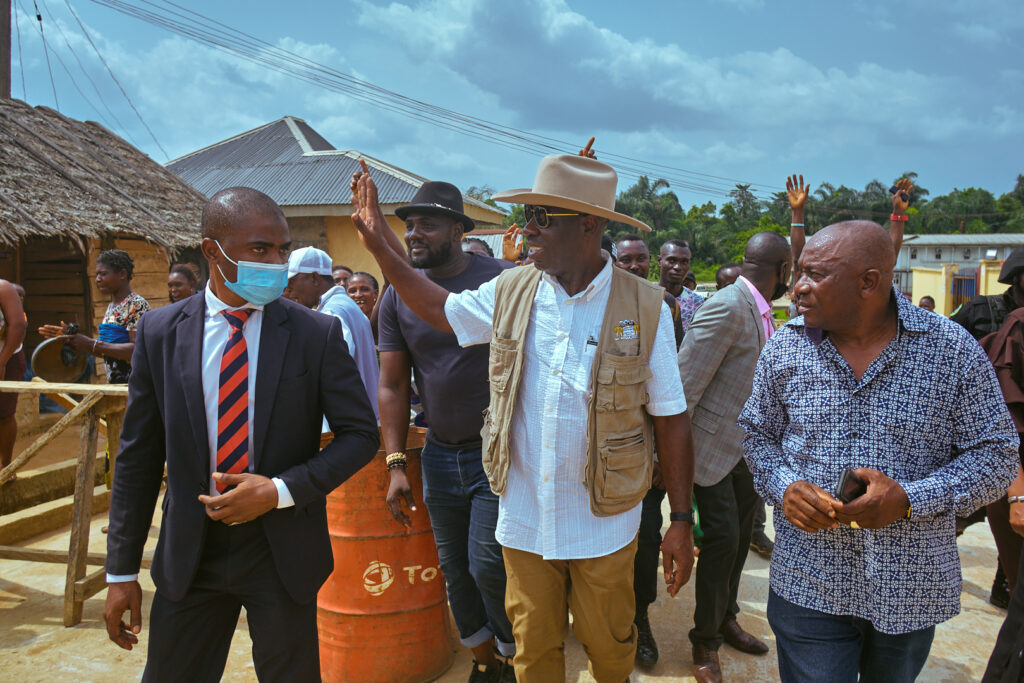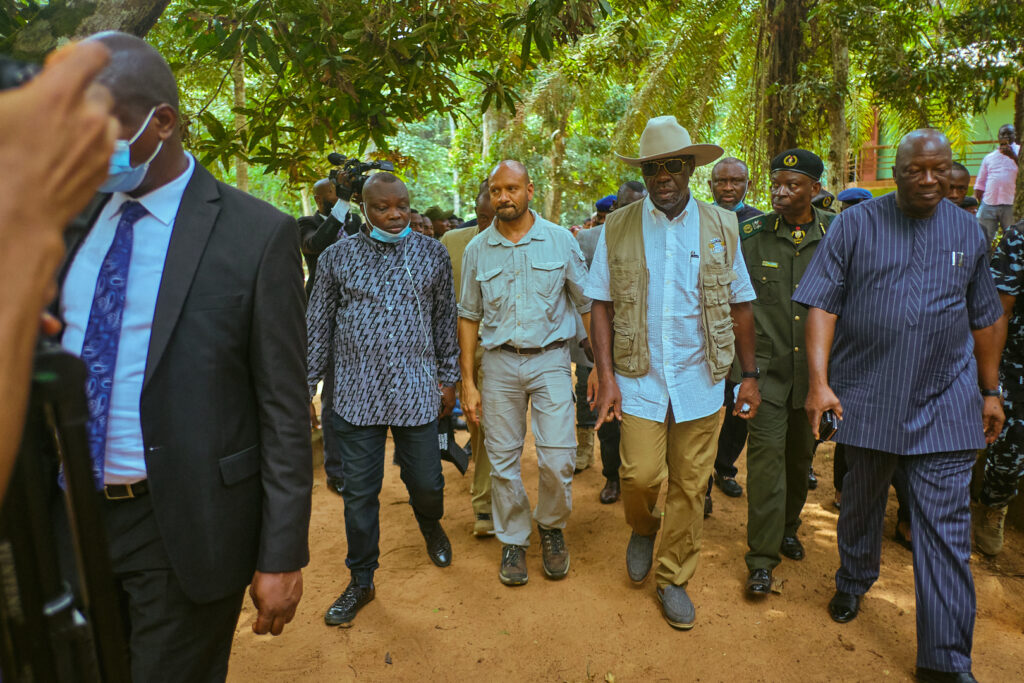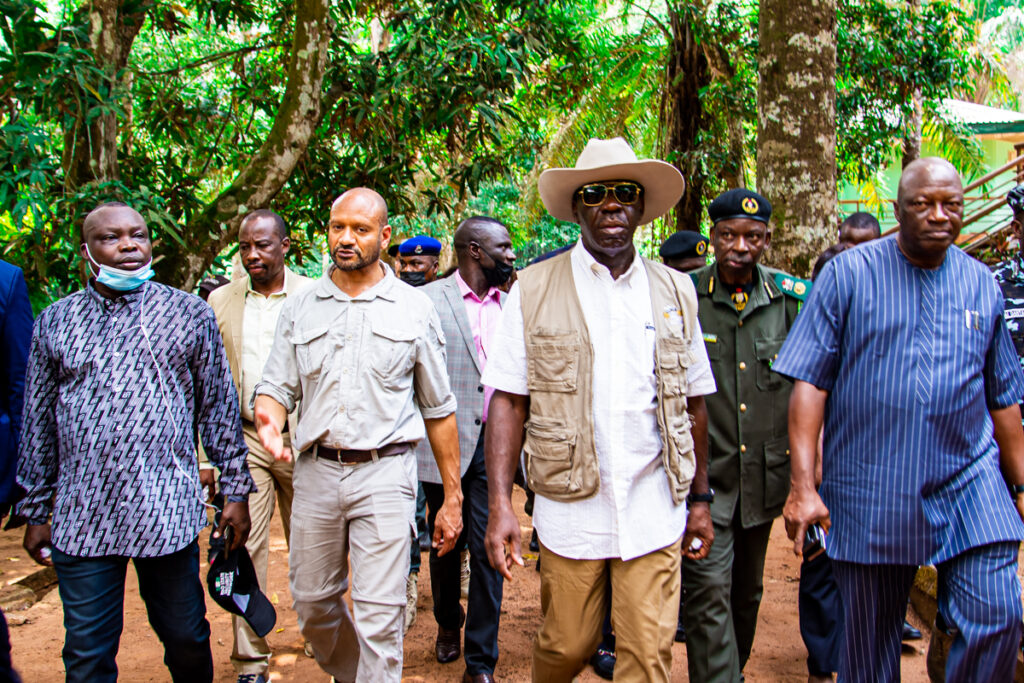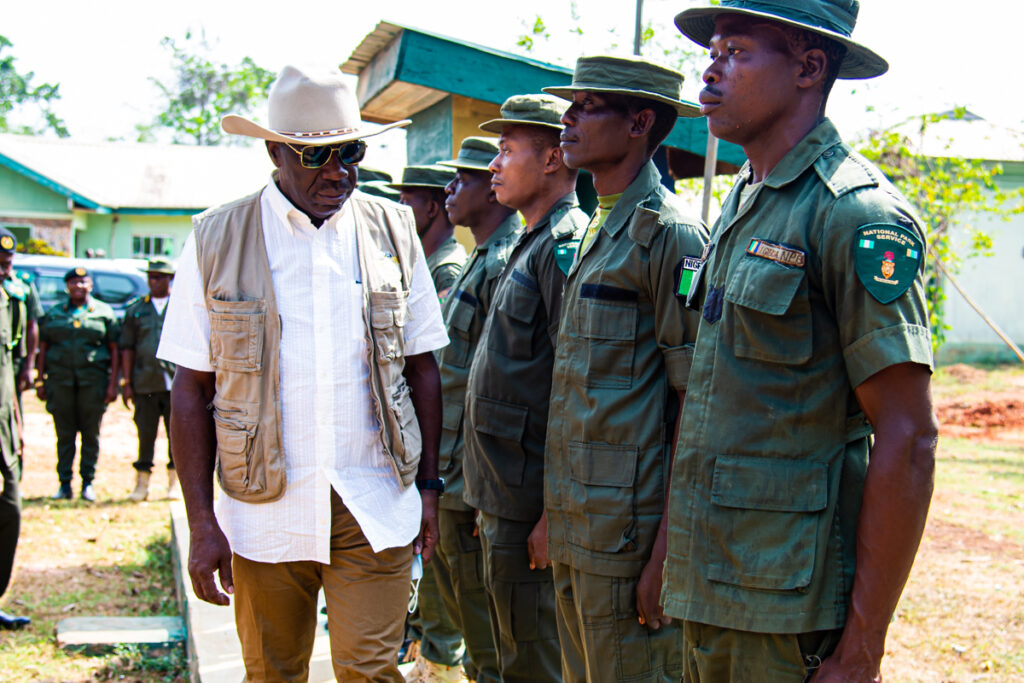As the world marked the World Wild Life Day on March 3, 2022, with the theme “Recovering Key Species for Ecosystem Restoration”, Edo State Governor, Mr. Godwin Obaseki, put words into action as he marched through the Okomu and Gelegele forests in Ovia South West and Ovia North East local government areas of the state.
Mr. Governor, as he’s fondly called, departed his Benin City home at 9am with the Secretary to the State Government, Osarodion Ogie Esq., his Chief of Staff, Hon. Osaigbovo Iyoha, some commissioners and other aides as well as heads of security agencies in tow, to the Okomu National Park. Obaseki had on, a fitting Gambler hat, khaki pants and a sleeveless jacket for the day.
Upon arrival at Okomu, he went straight into the office of the Conservator of National Park Service Edo State Mr. Augustine Obekpa. The men spoke about the challenges facing the park; brazen theft, intimidation by some criminal elements with more sophisticated weapons, inadequate personnel and insufficient policy support.
Obekpa commended the state government for the support, noting that no other governor had ever visited the park for on-the-spot situation assessment.
Obaseki in his response, committed to revitalising the park and supporting the facility in the area of security.
Recall that on Tuesday February 22, 2022, at the Forestry Workshop held in the Government House in Benin City, Obaseki was visibly upset when he pleaded with loggers to save Edo’s forest for the next generation.
“We have neglected the forest and left it in a bad shape. If those that came before us consumed and treated the forest badly this way, we would not have met the forest.”
The closure of the forest, according to the governor, was not done to punish anybody, but in the best interest of stakeholders and to improve the forestry sector to enable it to contribute meaningfully to the development of the state.
He said, “You all voted for me to govern Edo State and whatever we are doing is for the benefit of all of us. We have to be responsible for our forest. Forestry will not be under any ministry but on its own to be able to function effectively and efficiently. We want to govern this sector properly. We must update the law guiding forestry. We can’t operate in 2022 with an outdated law of 1930 or 1940.
“We must take our policy seriously and implement it to get a good and better result. We have to bring in experts to help us secure our forest. Our focus should now be how to regulate those who play in the forestry space and ensure we use qualified persons, focusing on bringing investors into the state to invest in the forest and protect it against criminal elements.”
“We must grow a minimum of one million trees a year to save and preserve the forest or else we won’t have any business for the next 10 years. It is important if we want to have a business doing forestry.”
Forestry stakeholders had gathered to review the new Edo Forestry Bill that the government was proposing to the Edo State House of Assembly when Obaseki, showed evidence from the phone videos he had received about illegal logging going on in the forests which had been closed by the government.
A visibly pained Obaseki told the audience that he receives daily updates from the National Parks Service and was determined to ensure that Edo’s natural resources are only spent sustainably to ensure longevity.
On the trip to Okomu, not very obvious to the people in his entourage, Obaseki visited the Ovia part of the state with Africa Nature Investors Foundation’s Tunde Morakinyo (Executive Director) to see first-hand the threats to Edo’s biodiversity, its economy and existence.
ANI was instrumental in the trip as they continue talks with the federal government to partner in the protection of Okomu National Park. Recall that the Edo State Government recently asked ANI to help in the restructuring of the Forestry Commission and the protection of the Gelegele Forest Reserve.
Obaseki’s March 3rd trip to Okomu National Park was an eye opener as he toured the facility on foot (the man saw every structure in the place and pulled all of us along with his energy), an inspection of the National Park guards and students of the University of Agriculture Makurdi (guards mounted in his honour), a grueling trip to Nikrowa Community, dialogue with the leadership in the community to find solutions to the activities of environmental terrorists who hide in the riverine areas to wreak havoc on the wildlife and vegetation, a boat trip to Gelegele Park and a follow-up meeting back in Osadebe Avenue before by 8pm.
As Premium Times reported, “an estimated 1.6 trillion wild animals are killed by humans every year. Tonnes of animals such as elephants and pangolins are trafficked yearly.
“This trade, it said, also poses public health risks and about 60 percent of emerging infectious diseases are zoonotic, with more than 70 percent of emerging infectious diseases thought to originate from wildlife.
“Zoonosis is explained as an infectious disease that has jumped from a non-human animal to humans. Zoonotic pathogens can be bacterial, viral or parasitic, and may involve unconventional agents that can spread to humans through direct contact or food, water or the environment.”
Most exploited regions are far to reach, and the trips that poachers make back to the markets provide a fearful opening for the transmission of these zoonotic diseases. Covid 19 comes to mind. The seconding of forests in Nigeria as terrorists’ bases, makes Obaseki’s passionate efforts towards saving the 48 reserves in Edo and the biodiversity they hold appears to be so far, the most sustainable option to solving security and environmental threats in one swoop.
This shows that Obaseki expects to solve Edo State’s environmental problems with sustainable solutions.
His scope of work ranges from setting a new standard for the state as roads are now built with modern drainage systems to prevent flooding and erosion, to training and equipping park rangers to prepare an environment for Edo to attract significant investments in tourism.
As usual, he has not embarked on this journey alone. He has development partners, big businesses, host communities, traders, political and traditional leaders, and many other groups at the table as his Making Edo Great Again bulldozer charges through the state.


